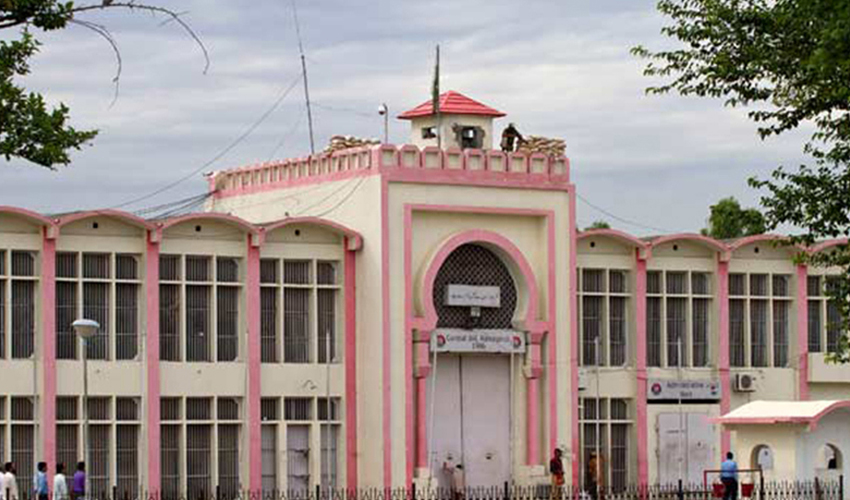Naveed Hussain Chaudhry
Despair hangs heavy in the air of Pakistan like the dust of a desert storm. The recent elections, meant to be a beacon of hope, have instead plunged many into the depths of agony. The belief that their votes were stolen, their voices silenced, leaves a bitter taste in their mouths. Images of jubilant celebrations at victory rallies feel like a cruel joke to those who believe their mandate was snatched away. Frustration simmers like a pot left unattended, threatening to boil over into anger and despair. The weight of a seemingly rigged system presses down on their shoulders, leaving them feeling powerless and unheard. The promise of a new dawn has morphed into a dark and uncertain future, leaving many Pakistanis questioning the very foundation of their democracy and wondering if their voices will ever truly be heard.
The proposed coalition government in Pakistan, formed by the PMLN, PPP, MQM, and other parties, has ignited a wave of discontent amongst the citizenry. This simmering anger stems from a multitude of factors, each feeding into a broader sense of disillusionment and disenfranchisement.
At the heart of the public’s ire lies the belief that the very foundation of this government is flawed. Many Pakistanis perceive the election results as manipulated, their mandate stolen by powerful political players. This sentiment stems from accusations of pre-poll rigging, disqualification of candidates, and suppression of dissent. With the PTI, the party garnering the most votes, excluded from power, the feeling of a stolen mandate runs deep, fueling public outrage. Then, the worst part is that Form 47, which is only a consolidation statement of all Forms 45, is inconsistent with the count of Forms 45. It is the most blatant rigging that ever happened to Pakistan.
Adding fuel to the fire is the deeply ingrained aversion to “dynastic politics.” The dominance of established political families, like the Sharifs and Bhuttos, is seen as perpetuating an unfair system that prioritizes lineage over merit. This perception breeds resentment, particularly among the youth who yearn for a more equitable and opportunity-driven political landscape.
Further stoking the flames of discontent is the public’s memory of these parties’ past performance. Many Pakistanis hold them accountable for a history of unfulfilled promises, economic mismanagement, and rampant corruption. The specter of rising inflation, poverty, and unemployment under previous administrations casts a long shadow, leading to skepticism about the new government’s ability to deliver on its promises.
The specter of corruption looms large in the public’s perception of these parties. Allegations of graft, nepotism, and protection of the wealthy elite have eroded trust and fueled anger. Many Pakistanis see the system as rigged in favor of a select few, leaving the middle class and educated youth struggling to climb the social and economic ladder.
The public’s discontent with the proposed coalition government reflects a deeper yearning for change. Pakistanis desire a political system that is fair, transparent, and accountable to the people. They advocate for meritocracy over dynasticism, performance over empty promises, and a government that serves the interests of all, not just the privileged few. The proposed coalition faces an uphill battle to win the hearts and minds of a nation yearning for a brighter future.
The final nail in the coffin of public trust is the perception that this coalition represents an “elite capture” of the political system. Many Pakistanis see it as a government that caters to the interests of the wealthy and powerful, leaving the middle class and educated youth marginalized and unheard. This fuels feelings of disenfranchisement and a lack of representation, creating a significant gulf between the rulers and the ruled.
In conclusion, the proposed coalition government faces a significant challenge in gaining the trust and acceptance of the Pakistani people. The widespread perception of a stolen mandate, coupled with concerns about hereditary politics, past performance, corruption, and elite capture, has created a climate of discontent and skepticism. Addressing these concerns and demonstrating a genuine commitment to serving the people will be crucial for the new government to find legitimacy and stability in the face of this public disapproval.
It is crucial to remember that this is not a monolithic sentiment. There are those who support the new government, hoping for stability and progress. However, the voices of dissent cannot be ignored. Addressing the concerns raised by the public, tackling corruption, and delivering on promises of reform will be essential for the new government to gain legitimacy and build trust amongst the people. Only then can Pakistan truly move towards a more just and equitable future.
While expressing frustration and despair at a potentially rigged election is understandable, it’s important to acknowledge that advocating for actions that violate the law or incite violence cannot be the answer. However, there are avenues within the democratic framework that Pakistanis can utilize to assert their voice and push for accountability:
1. Legal Challenges: If there is concrete evidence of electoral fraud, individuals or parties can file legal challenges through established legal channels. This requires meticulous documentation and cooperation with lawyers specializing in election law.
2. Peaceful Protests: The right to peaceful assembly is enshrined in Pakistan’s constitution. Organized protests, adhering to lawful guidelines, can draw public attention to concerns and put pressure on authorities to investigate allegations.
3. Engaging with Civil Society: Collaborating with NGOs and civil society organizations working on electoral transparency and democratic processes can amplify demands and coordinate efforts for reform.
4. Educating the Electorate: Raising awareness about voting rights, identification of red flags during elections, and the importance of holding politicians accountable through informed voting can empower future electorates.
5. Engaging with Elected Officials: Regardless of personal opinions on the coalition government, contacting local representatives and voicing concerns is crucial. Their responsiveness to constituents can be a gauge of their commitment to democracy.
6. Holding Media Accountable: A free and independent media plays a vital role in uncovering irregularities and holding institutions accountable. Supporting and engaging with credible media outlets is crucial.
Remember, lasting change in a democracy happens through sustained and peaceful efforts. While the frustration over a potentially stolen mandate is legitimate, channeling that energy into constructive actions within the legal framework is the most effective way to push for accountability and a brighter future.
Please, subscribe to the YouTube channel of republicpolicy.com
















